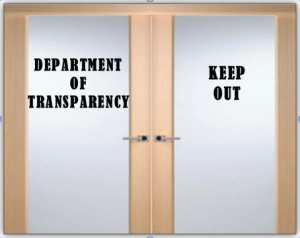I implore you to learn about policy changes that took place during the previous administration and ask your school board members to return responsibility for managing KCS to the BOE. It is their DUTY under the law. Delegating this responsibility to one person is reckless and irresponsible.
For years, people have asked how/why the KCS superintendent had so much unchecked power.
They asked why nobody could do anything about it.
The answer is pretty simple:
A Board sets policy and their policies empowered him.
The argument between managing or micro-managing is pointless.
These policies determine whether the supervisor manages the employee or the employee manages the supervisor. If the employee isn’t willing to be managed and/or if the supervisor isn’t willing to manage, it is time for a change.
A Board governs through policy.
Waiting until AFTER something happens is an extremely poor way to govern. By that same token, creating a policy that delegates authority away from those who have a duty to manage closes the door on oversight and transparency.
those who have a duty to manage closes the door on oversight and transparency.
For the past three months, I have been trying to help others understand the seriousness of some of the policy changes that took place under the previous administration. The interim superintendent has railed against anything that limits his unchecked power and continues making unprecedented changes to positions as well as to the entire administrative reporting structure. The current Board seems to have a serious lack of concern for doing their job and correcting this situation.
Policy change introduction, presented to the BOE at the December 5th work session:
These four policies were changed during the previous administration. At that time, we had a superintendent with a management style that was very top-heavy – and some have gone so far as to call it “dictatorial.” Yes, there was “a reason” these policies were changed:
- These changes made it easier for mis-management to work, unencumbered by questions or transparency.
- These changes delegated away the Board’s legal duty to “manage and control all public schools established or that may be established under its jurisdiction” (T.C.A. 49-2-203)
- Related to the duty to manage, there was an opinion expressed in the Supreme Court of TN, which (though not always embraced) has remained legally true for nearly 40 years:
“The duties of the superintendent are highly important but they do not, with respect to essential features of school management, override the authority of the school board. Naturally, the superintendent’s advice will be given much consideration, but the ultimate responsibility and the finality as to choice rests with the school board.”
This quote continues with the following (which was not read in the Dec. 5th meeting):
“It may act on its own sound judgement as to what is required by the public welfare, and contrary to advice from any source, even from the superintendent of schools. The school board is still the master and not the servant. 201 Tenn. 190-191, 297 S.W.2d 640” (All from 558 S.W.2d 838 (1977), Sanders vs Vinson, et al. December 5, 1977)
That we are STILL having this problem – almost 40 years later – should be alarming.
Policy A-100
School District – School Board Legal Status and Authority.
This policy was revised 7/16, as the Board’s 5-4 voting bloc was running out of time in office.
3885_A-100 School District-School Board Legal Status and Authority Second Reading Revisions
(This is the red-lined version.)
My focus was to make this simple: just revert to the previous policy.
It would be a simple matter of replacing the one line that had been removed and renumbering:
“2 Approve the number of positions of employment & salary schedule for such positions”
Easy, right?
No.
It seems the misuse of semicolons is/was of no consequence to anyone, with the exception of the one between item #1 and #2. A Board member said it looks like #2 refers to #1, yet when I asked what they would like to see to make it clear. I got nothing constructive.
It would have been very easy to make a friendly amendment to move #2 to the top of the list, add the word “system-wide,” or just change all of the semi-colons to periods. Though several took issue with the language, nobody presented any amendment to make it more agreeable to them. Instead, the policy passed on first reading.
A full month later, Terry Hill stated in the work session that she still has a problem with the language and wants to invoke “personal privilege” to put off the second reading until January. She doesn’t want to DO anything to improve it – just put it off for 30 days…
PERSONAL PRIVILEGE
The reason this is significant is that this Personal Privilege ends all discussion and there can be nothing more said until the January meeting. The interim superintendent can continue creating, changing, or terminating positions however he likes. He may set the salary for those positions to be whatever he likes and create any job description and reporting structure he likes, as long as it can be funded within the present budget. In other words, if he wants to terminate 47 employees and create 5 brand new positions that report to the supervisor of underwater basket weaving, he can – as long as he does so within budgeted cost of those 47 terminated employees.
He (or the next super) can absolutely do that – and anything else you might imagine. And your elected Board won’t be able to do a darn thing about it (unless we begin another expensive termination process), because we GAVE him that power.
Crazy? Yep.
And that is how we have been operating for the past several years.
Unchecked.
Unencumbered.
Unhinged.
And this is only the beginning.
Please watch for part II.
(If you can’t wait for the continuation, links to the other three policies are at the bottom.)
Recent Comments